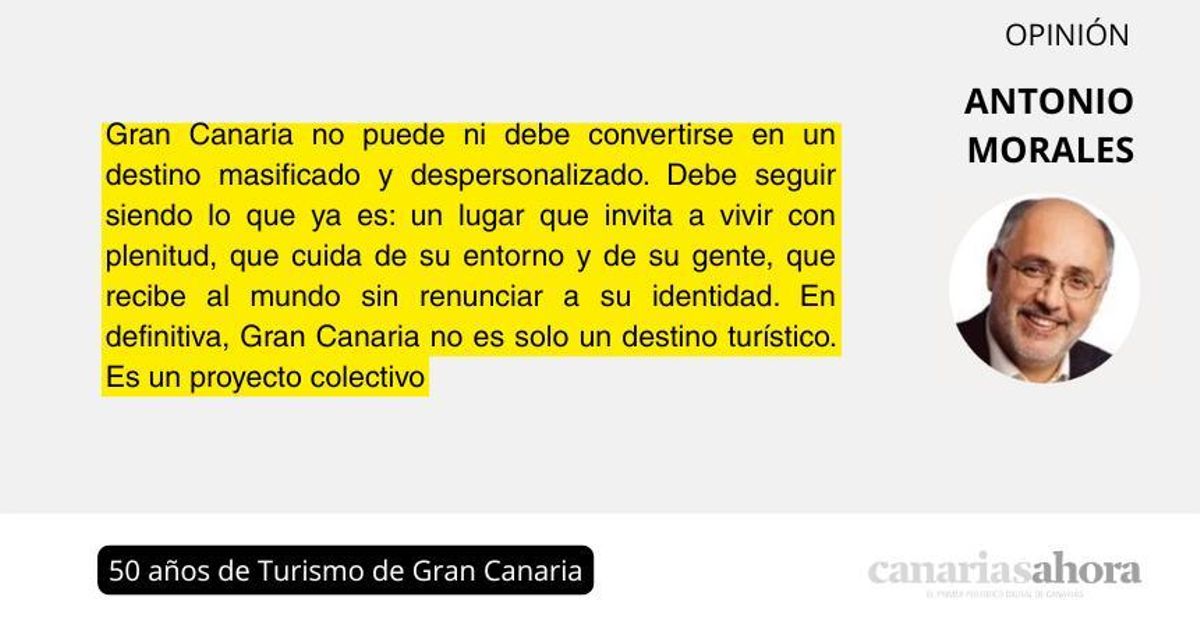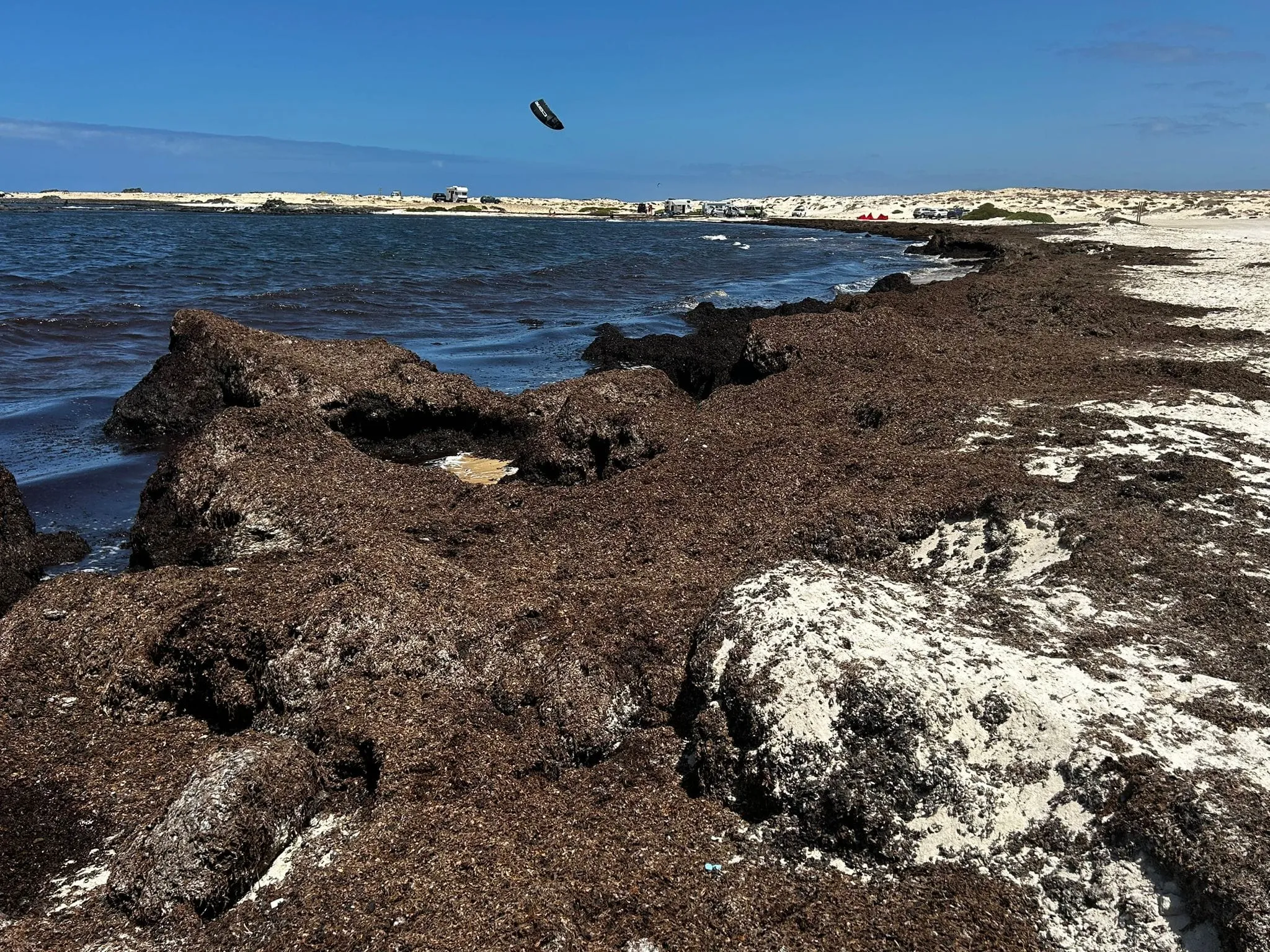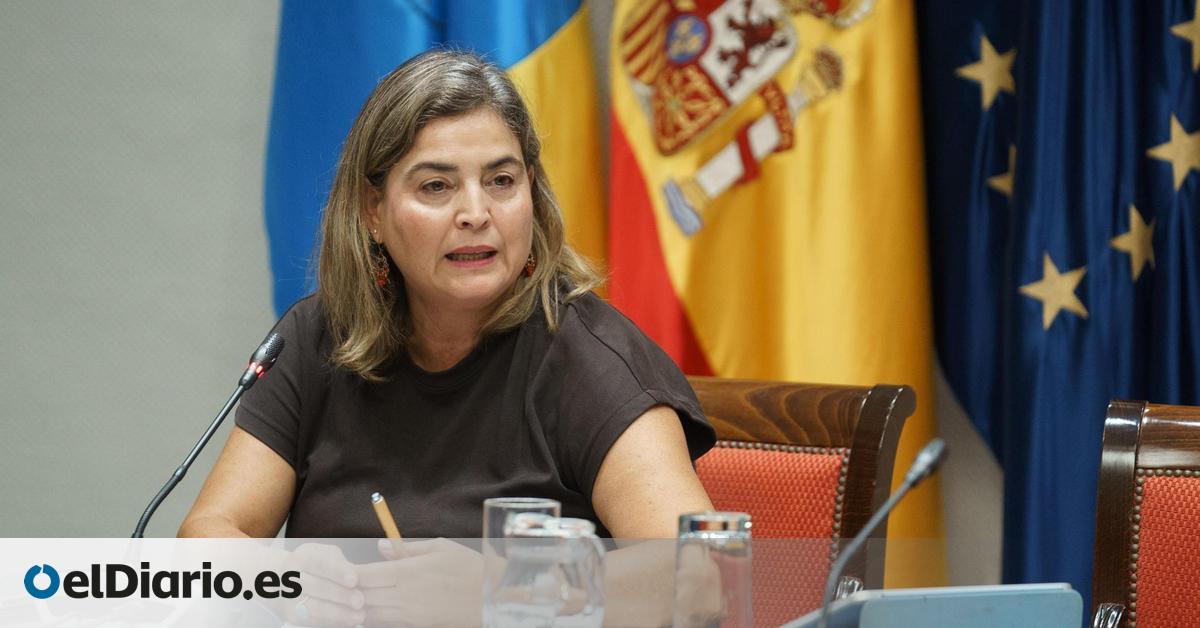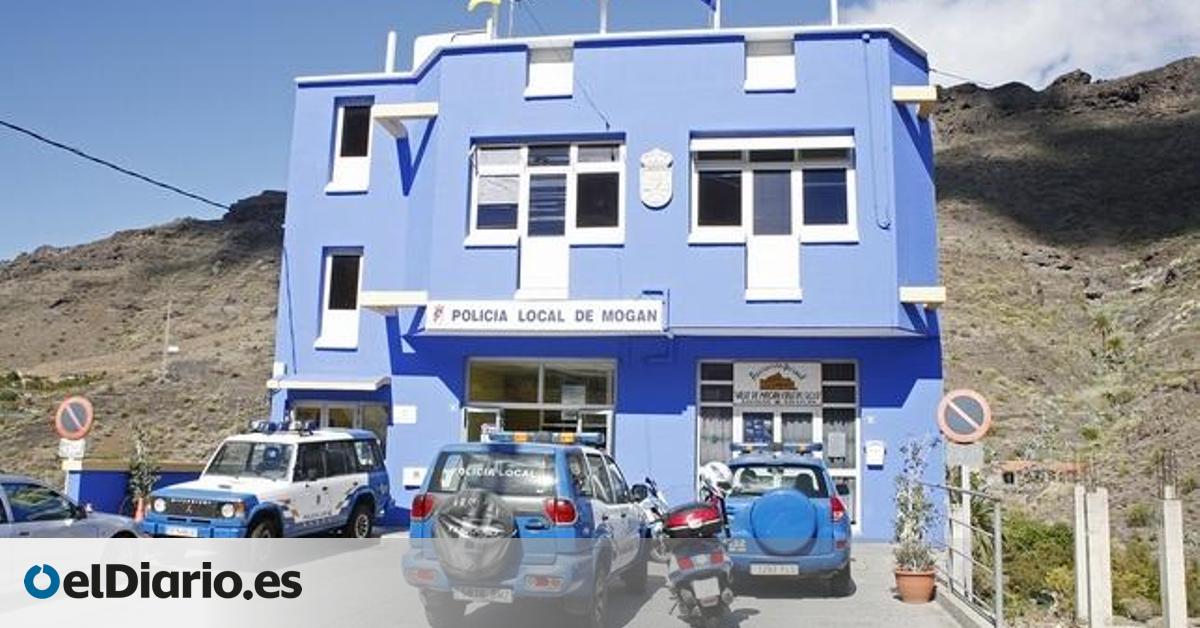Gran Canaria: A Unique Collective Project Amidst Growing Tourism Challenges
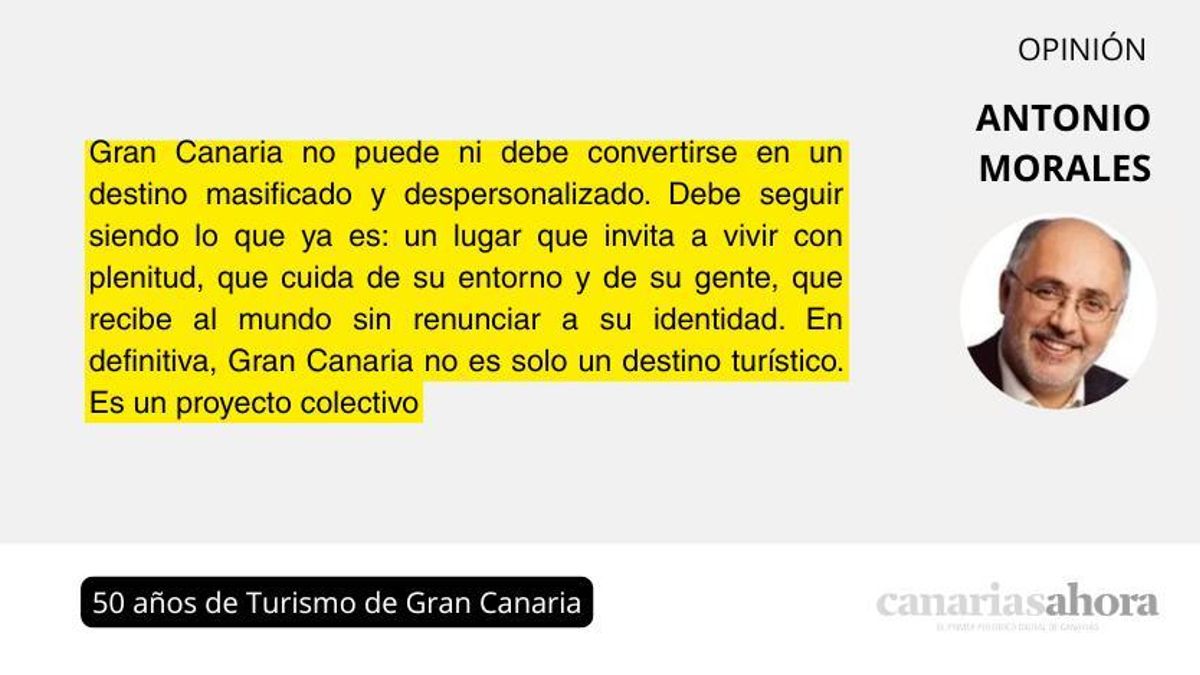
Gran Canaria must not and cannot become a mass-produced, impersonal destination. It should remain what it already is: a place that invites full living, cares for its environment and its people, and welcomes the world without losing its identity. Ultimately, Gran Canaria is not just a tourist destination; it is a collective project.
The Importance of Sustainable Tourism
Tourism is a vital activity for Gran Canaria, influencing our economy and affecting the quality of life for hundreds of thousands of people. It energises our culture and significantly impacts our territory and heritage. The Cabildo understands this, which is why the island’s government is pushing for changes that promote a sustainable tourism model, reducing risks and enabling balanced development that benefits the broader community while respecting the environment.
This new direction requires dialogue with business and union representatives, local councils, experts, and other social interlocutors concerned about the industry’s impact on society and the environment. We discussed this in Overbookingha this week, kicking off a programme of activities launched to commemorate the 50th anniversary of the creation of the Provincial Tourism Board, now Tourism of Gran Canaria.
Reflecting on Fifty Years of Tourism Promotion
As we celebrate fifty years of tourism promotion by the Cabildo of Gran Canaria, it is a pivotal moment to consider future priorities based on the experiences gathered. Since the classic Greeks dubbed us the “Fortunate Isles,” through the well-regarded writings of Pliny the Elder, to the 20th century recognition of being a “miniature continent,” and the recent proud declaration of being “the island of my life,” Gran Canaria has learned to narrate its story in tourism terms. This narrative is more than an advertising exercise; it is a cultural account, a way of seeing and projecting ourselves. As the sociologist John Urry explained, “tourism not only consumes places; it also produces them.” In this regard, Gran Canaria has successfully presented itself as a diverse, welcoming place for over a century and a half.
Fifty years ago, the Cabildo established the Provincial Tourism Board of Las Palmas. This was a brave and visionary decision made at a time when Spain sought to overcome underdevelopment. That entity professionalised the management of a sector already emerging as an economic powerhouse. It marked a shift from improvisation to strategy, from propaganda to promotion based on analysis, quality, and planning. It was not a leap into the unknown: as early as 1934, the artist Néstor Martín-Fernández de la Torre, his brother Miguel, and publicist Domingo Doreste had established the first Centre for Initiatives and Tourism in Spain. They were visionaries who recognised that an Atlantic island could solidify its role as an intercontinental stopover, becoming a place for encounter, modernity, and progress.
Remarkable Achievements
The results of these decisions have been extraordinary. Today, tourism accounts for over 35% of the island’s GDP and more than 40% of employment. In 2024, we are projected to hit a historic record of €6.034 billion in revenue, with an average spending of €171 per person and an occupancy rate of 81.5%, all without increasing accommodation capacity. Most importantly, this growth is positively reflected in people’s lives. In 2024, the island achieved the highest employment level in its history, with 404,600 people employed—37% more than in 2015—and a 59% reduction in unemployment. Family incomes have risen: the average household income has grown by 20% over the past decade. Tourism has, therefore, been much more than an industry; it has been a vector for dignity and opportunity.
However, not all is positive. I acknowledge that there have been and continue to be imbalances and excesses generating increasing dissatisfaction among parts of the population, who feel that the overcrowding of our islands—some more than others—due to the constant influx of visitors is worsening our living conditions, saturating public services, raising housing costs, and diminishing employment quality. Social movements are demanding that the benefits of tourism be democratised, sharing positive outcomes and sacrifices. Simultaneously, there is a demand to preserve natural and cultural values and to avoid damaging sensitive areas of great environmental or cultural importance.
I am convinced that we must reorient our tourism model to connect with this growing sentiment among the population, which calls for dignified living while solidifying our identity in a conserved and protected environment. I believe we are well-positioned to reach agreement on the priorities for the next decade.
An Evolving Perspective
The real change lies not in the numbers but in the approach. Over the past ten years, Gran Canaria has embraced a different tourism model: not growing indiscriminately but managing better. We cannot continue to increase visitor numbers and constructed space. We must prioritise increasing spending per visitor over the constant influx of tourists. We are decentralising activities and offerings across our 21 municipalities, ensuring that interior areas also benefit: since 2019, tourism revenues in these regions have risen by 66%. The range of offerings has diversified, promoting rural, active, gastronomic, and cultural tourism that complements the traditional sun and beach.
This transformation aligns with a broader vision. As economist Jeffrey Sachs stated, “sustainable development is the moral challenge of our time.” Gran Canaria has understood this: it has tripled its clean energy production since 2015, achieving a 25% green quota and obtaining international certifications such as Biosphere Reserve, World Heritage Site, Biosphere Destination, and Starlight Destination.
The sustainability debate in the tourism sector is not exclusive to the Canary Islands. Cities like Venice, Barcelona, and Amsterdam have suffered from the consequences of overcrowding and have had to impose limits on visitor influx. In contrast, Gran Canaria has sought equilibrium. There is no sentiment of tourism phobia here. Instead, there is an awareness that we must continue to address excesses and balance benefits. The challenge is clear: to turn tourism into an ally of sustainability. It is not enough to avoid harm; we must actively regenerate. As Anna Pollock, a leading figure in regenerative tourism, asserts, “the tourism of the future must not only be sustainable; it must actively contribute to restoring what we have lost.”
This means strengthening water, energy, and food sovereignty; consolidating our World Heritage status; achieving the Guguy National Park; promoting local products and the “zero-kilometre” initiative; ensuring that tourism revenue also reaches farmers, artisans, and small businesses; and ultimately constructing a model where the well-being of local residents is as important as the satisfaction of visitors.
Beyond infrastructures, statistics, and certifications, what distinguishes Gran Canaria is something far more human: its people’s warmth, peaceful coexistence, and safety. Communities such as the LGTBI+ population recognise this island as a safe, free, and respectful space, where diversity is not only tolerated but celebrated. This hospitality explains the remarkable loyalty of our visitors. Tourists do not return only for the climate, the beach, or the gastronomy; they come back because they feel at home here. It is to this community that we must not fail, by socialising benefits, regulating uses, limiting excesses, and securing resources to protect, regenerate, and restore the ecosystems and public services affected. The writer Paul Theroux aptly expressed: “travel is not about seeing new landscapes but having new eyes.” Those who visit Gran Canaria discover a distinct way of seeing and living—a deep connection between landscape and island community.
Resilience in the Face of Challenges
Recent history shows that tourism in Gran Canaria is not immune to global crises. The 2008 recession, Thomas Cook’s collapse, the COVID-19 pandemic, and recent inflation have all tested the sector. Yet they have also revealed its resilience. Rather than sinking, Gran Canaria has emerged stronger, with a more diverse and resilient business landscape. The experiences from these crises reinforce a conviction: the key lies not in blindly relying on tourism, but in integrating it into a plural economy, where agriculture, technological innovation, cultural industries, blue and circular economies, and renewable energies also play a vital role.
The future of tourism in Gran Canaria hinges on several key factors: prioritising quality over quantity, creating more resources with fewer visitors; continuing to enhance and modernise public infrastructures and facilities; solidifying territorial and product diversification, so that each municipality or region finds its place in the overall offering; strengthening energy and water sovereignty, ensuring visitor impact aligns with territorial sustainability; and deepening the democratisation of benefits, ensuring they reach the social sectors that need them most and work hardest. We must also advocate for the introduction of an eco-tax that provides direct resources to adapt infrastructures to the population growth driven by the industry, as well as a residency law, control of holiday rentals, and limiting property purchases by foreigners.
This is not an easy task. But it never has been, and it did not deter those pioneers who established the early entities and publications, the spaces we enjoy today. The Board that preceded the professionalisation and the creation of the national entity, Turespaña, a decade later. And we can succeed because we have the experience, institutional commitment, and, above all, the character of our people.
Tourism has been, is, and will continue to be a powerful lever for transformation in Gran Canaria. But what truly matters is how we manage it moving forward. If we turn it into a voracious industry, we risk jeopardising our future. If we understand it as a tool for equity, sustainability, and shared culture, we will then be able to look confidently towards the decades ahead.
Gran Canaria must not and cannot become a mass-produced, impersonal destination. It should remain what it already is: a place that invites full living, cares for its environment and its people, and welcomes the world without losing its identity. Ultimately, Gran Canaria is not just a tourist destination; it is a collective project. As we proudly say, it is the island of our lives.


